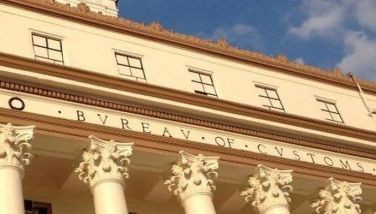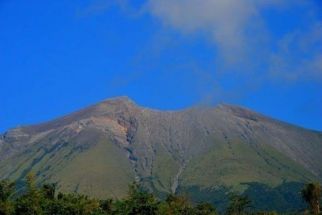Lastimoso: Registration of 2-stroke tricycles to continue, but…
May 23, 2003 | 12:00am
CLARK FIELD, Pampanga — Land Transportation Office (LTO) chief Roberto Lastimoso clarified yesterday that the government will still continue registering two-stroke tricycles, but that it is already discouraging people from buying such motorcycles.
Lastimoso issued the clarification as transport leaders representing some 1.7 million tricycle drivers nationwide threatened to stage mass actions after Transportation and Communications Secretary Leandro Mendoza said in a taped interview with The STAR that two-stroke tricycles would no longer be allowed to register due to the air pollution that they cause.
"The government is not prepared to phase out two-stroke tricycles since this could lead to dislocation (of tricycle drivers and their families)," Lastimoso said in a telephone interview.
"For one thing, the Department of Environment and Natural Resources still has to come up with standards for emission testing of two-stroke tricycles," he added.
He, however, said the government is now discouraging people from buying two-stroke motorcycles amid plans to ban their importation.
"We will still register those which have been bought, but we ask people not to buy them anymore," he said.
In a statement, the LTO said Mendoza’s statement was "premised on when the government assistance package for tricycle operators are already in place and in effect."
The assistance package, the agency said, was the result of a dialogue with leaders of tricycle groups.
Alfredo Alarcon, president of the Motorcycle Development Program Participants Association (MPPPA), bewailed plans to ban imports of two-stroke motorcycles, saying this would dislocate scores of local motorcycle assemblers and parts manufacturers, too.
"The Board of Investments has required that 45 percent of assembled motorcycles be made from locally manufactured parts under its motor vehicle development program, so phasing out two-stroke motorcycles would affect parts manufacturers," he said.
"We are complying with all the requirements of the government and now we are being displaced," he added.
The local motorcycle industry is also spending for the development of a coconut-based fuel found to reduce emissions from two-stroke motorcycles by as much as 70 percent, Alarcon said.
These efforts, he said, would be wasted if the government persists in eventually phasing out two-stroke motorcycles.
Alarcon said two-stroke motorcycles do not necessarily cause pollution and that only proper maintenance is needed to prevent them from emitting fumes.
Ariel Lim, president of the National Confederation of Tricycles Operators and Drivers Associations of the Philippines, decried the government’s phaseout plan.
He said Interior and Local Government Secretary Joey Lina earlier had issued a circular to all governors and other local executives nationwide instructing them to allow the continued operations of two-stroke tricycles in their areas.
Lim said experiments on the use of a coconut methyl as fuel for two-stroke motorcycles have shown as much as 70 percent reduction in emissions.
He said Malacañang is expected to issue soon an executive order promoting its use.
Meanwhile, Lim decried the LTO’s failure to comply with its earlier promise not to require emission tests for tricycles in the absence of testing equipment in their respective areas.
He said LTO officials in the provinces have been asking tricycle operators to go to private testing centers which charge a P150 fee.
Jet Vitug, LTO’s Central Luzon director, said this should not be done although he admitted lack of testing equipment in the region.
He said the government has only 18 testers for diesel-run vehicles and two gas analyzers in the entire region.
"For as long as the LTO (offices) in their areas do not have any testing equipment, tricycle operators are not required to have their motorcycles tested. But they are required to do so within 90 days upon the availability of such (equipment)," he said.
Lastimoso issued the clarification as transport leaders representing some 1.7 million tricycle drivers nationwide threatened to stage mass actions after Transportation and Communications Secretary Leandro Mendoza said in a taped interview with The STAR that two-stroke tricycles would no longer be allowed to register due to the air pollution that they cause.
"The government is not prepared to phase out two-stroke tricycles since this could lead to dislocation (of tricycle drivers and their families)," Lastimoso said in a telephone interview.
"For one thing, the Department of Environment and Natural Resources still has to come up with standards for emission testing of two-stroke tricycles," he added.
He, however, said the government is now discouraging people from buying two-stroke motorcycles amid plans to ban their importation.
"We will still register those which have been bought, but we ask people not to buy them anymore," he said.
In a statement, the LTO said Mendoza’s statement was "premised on when the government assistance package for tricycle operators are already in place and in effect."
The assistance package, the agency said, was the result of a dialogue with leaders of tricycle groups.
Alfredo Alarcon, president of the Motorcycle Development Program Participants Association (MPPPA), bewailed plans to ban imports of two-stroke motorcycles, saying this would dislocate scores of local motorcycle assemblers and parts manufacturers, too.
"The Board of Investments has required that 45 percent of assembled motorcycles be made from locally manufactured parts under its motor vehicle development program, so phasing out two-stroke motorcycles would affect parts manufacturers," he said.
"We are complying with all the requirements of the government and now we are being displaced," he added.
These efforts, he said, would be wasted if the government persists in eventually phasing out two-stroke motorcycles.
Alarcon said two-stroke motorcycles do not necessarily cause pollution and that only proper maintenance is needed to prevent them from emitting fumes.
Ariel Lim, president of the National Confederation of Tricycles Operators and Drivers Associations of the Philippines, decried the government’s phaseout plan.
He said Interior and Local Government Secretary Joey Lina earlier had issued a circular to all governors and other local executives nationwide instructing them to allow the continued operations of two-stroke tricycles in their areas.
Lim said experiments on the use of a coconut methyl as fuel for two-stroke motorcycles have shown as much as 70 percent reduction in emissions.
He said Malacañang is expected to issue soon an executive order promoting its use.
Meanwhile, Lim decried the LTO’s failure to comply with its earlier promise not to require emission tests for tricycles in the absence of testing equipment in their respective areas.
He said LTO officials in the provinces have been asking tricycle operators to go to private testing centers which charge a P150 fee.
Jet Vitug, LTO’s Central Luzon director, said this should not be done although he admitted lack of testing equipment in the region.
He said the government has only 18 testers for diesel-run vehicles and two gas analyzers in the entire region.
"For as long as the LTO (offices) in their areas do not have any testing equipment, tricycle operators are not required to have their motorcycles tested. But they are required to do so within 90 days upon the availability of such (equipment)," he said.
BrandSpace Articles
<
>
- Latest
- Trending
Trending
Latest
Trending
Latest
Recommended
























